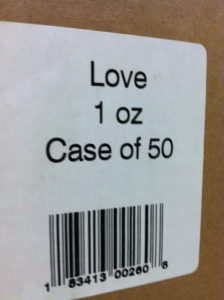 Working in veterinary medicine for any amount of time will affect your perspective, in ways you won’t always be able to predict.
Working in veterinary medicine for any amount of time will affect your perspective, in ways you won’t always be able to predict.
The first thing that goes is the feeling that anything is ‘too gross’ to talk about, even while eating. Things that were formerly far too repulsive to even contemplate will become part of your daily life, and you’ll forget you ever thought they were that bad. New, much more disgusting things will take their place. The bar will be forever raised. I think of this as a good thing, particularly if you have kids.
As a side effect of not being grossed out by much, you’ll find that watching surgery can make you hungry (spays remind me of Italian food). It also gives you a totally new perspective on cutting up meats in your kitchen. You’ll start to notice the vessels and identify the bones in your chicken, and feel faintly bad about cutting into muscle.
It’ll change you in ways you aren’t aware of being changed. For example: in my kitchen, I have a sponge to wash dishes with (much to my dishcloth-using family’s disgust). For years, my sponge of choice has been the wavy pink one that is ubiquitous at grocery stores and Targets.
Probably the most important part of my job is monitoring patients under anesthesia. I have stared at innumerable dogs and cats, assessing color, feeling pulse quality, watching breathing, looking at eye position, jaw tone, and several pieces of monitoring equipment. Although every patient is slightly different, I know what anesthesia should look like, and am trained to notice if things don’t look quite right, or if things change.
A friend once stopped in while I was working, saw a cat under anesthesia and remarked, “That cat looks dead!” It was a revelation to me. The cat was pink, breathing well, monitors all showing good vitals—to me, that cat was manifestly alive! It’s a shift. But I digress.
So, back to my kitchen. One day, I decided to be spontaneous and crazy, but most of all eco-friendly, and buy one of those weird recycled hemp style sponges you see that are 95% something awesome that will save the planet. I’m all for planet saving. When my last pink sponge became hopelessly clogged with cheese (you sponge users/cheese fanatics out there will know what I’m talking about—when you have to pry your sponge off the counter because all the cheese acts as glue), I tossed it, and proudly placed my new Eco Savior sponge on the counter.
Now, if you’ve seen these sponges, you know that they are that brown paper bag color that signals to all and sundry that you are quite the eco-minded individual. Doing something great for the planet! They are, in a word, beige.
So the next morning, having forgotten all about my new sponge and mission to save the planet, I get up and stagger to my kitchen for my morning coffee. I glance sinkward and gasp!—my sponge is dead! Or at least, that’s the first thought that my shocked brain can formulate. My sponge was pink, healthy, and now its color is terrible—it must be dead.
About a nanosecond later, all the other neurons in my brain were laughing and pointing at the one poor guy who sent out the alarm signal. But, I realized, that’s what I’m trained to do. I ultimately had to divest myself of the beige sponges and go back to pink. I want to save the world, but I need a healthy sponge. Besides, it turns out that those sponges don’t clean very well and fall apart really quickly.
Some shifts are more predictable: you’ll start to have opinions on how your family and friends take care of their pets. I should warn you about this: learn to keep your mouth shut early. If someone asks you for advice, by all means give it. But you’ll have to learn how to say things as general guidelines, without drawing specific attention to the ways they are failing their pets, in your eyes. I’ve seen this divide families, and cause lasting rancor.
Another thing to change, profoundly, is your reaction when you hear about animals in hoarding situations, or abuse or neglect cases. These make everyone sad, and angry. They’ll make you physically ill. Once you have seen an animal or two from a situation like that, doing the mental multiplication will punch you in the gut.
These are just a few examples of the ways your perspective will be altered. The veterinary world will make you a different person, but you will join a huge fellowship of people who feel just the way you do, and together, you will make a difference for many animals and their people.